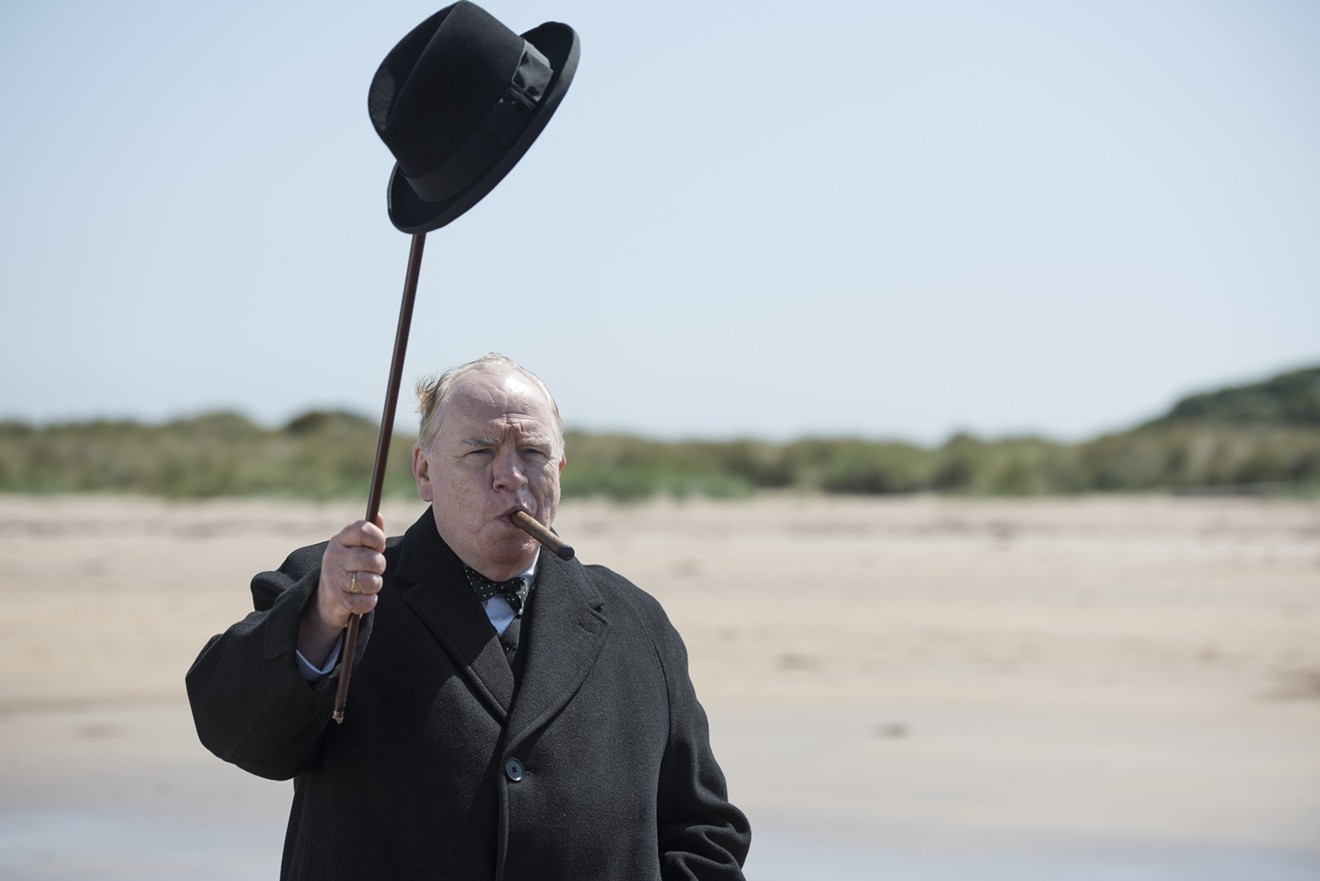“We shall fight on the beaches,” Winston Churchill famously orated in 1940. But according to the film Churchill, opening here in the Valley this weekend, the idea didn’t appeal to him that much.
Directed by the Australian Jonathan Teplitzky, from a script by Alex von Tunzelmann, this historical drama isn’t structured like the usual chronicle history. Out of Churchill’s nine-decade life, it covers only the four days leading up to D-Day in 1944.
It depicts the aging Churchill, played by Brian Cox, railing ineffectually against the Normandy Invasion about to be launched. He’s haunted by his memories of the horrifying loss of Australian and New Zealander soldiers in the disastrous, and in his view similarly planned, Gallipoli Campaign in 1915, which he, then First Lord of the Admiralty, had supported.
Churchill’s dire prophecies are ignored by Eisenhower (John Slattery) and Montgomery (Julian Wadham). Meanwhile, his wife, Clementine (Miranda Richardson), his pal Field Marshal Jan Smuts (Richard Durden), and King George VI (James Purefoy) scold and/or cajole him, much as one would a child, to behave properly.
New Times had a chance to chat with Jonathan Teplitzky, who directed the 2013 World War II-themed drama The Railway Man with Colin Firth and Nicole Kidman, about Churchill.
New Times: How did you come to be involved with Churchill?
Jonathan Teplitzky: I came quite late to the project. Alex had been writing it slightly left of field, not as the sort of usual historical biopic, and then I found that Brian Cox, who I’ve always felt was one of the great British actors, was attached to play Churchill, and the opportunity to work with him was too irresistible.
How familiar were you with Churchill’s story before working on the film?
In Australia, we grew up with an ambiguous view of Churchill, because of Gallipoli. So I grew up knowing him as not the iconic mythical leader. But we also grew up learning about him as one of “our” leaders, because we were in the Commonwealth.
What’s different about your film’s take on Churchill than others we’ve seen?
We did a lot of work on the script. I did a bit of research on Churchill. You have to remember that this is a man in his late 60s, who remembered the tragedy of Gallipoli in the First World War, and he couldn’t bear the thought of it happening again. But Eisenhower was pretty much running the war by that time, and Churchill was sort of sidelined. His heyday was past. It was four years since the Blitz, when he sort of singlehandedly led the British to defy the Nazis. He was a very un-British, emotional man. He would burst into tears in Parliament, and would walk out on the streets and hug people. Many people talk about Churchill being like a child, child-like. The cigar was like a thumbsucker.
Yet while Churchill was right that the Normandy Invasion would cause a terrible loss of life, unlike Gallipoli, it proved to be a turning point in the war in the Allies' favor. So what is the film’s position, historically?
The loss of life [in the Normandy Invasion] was much less than they expected. I guess a conservative viewpoint is that history is black and white, that there’s a right view of it and a wrong view. My view is that history is a series of points of view. History is a very inexact science. I think you can interpret the film as an allegory for growing old, and seeing the mistakes you’ve made when you were young. You don’t want to make these mistakes again.
How was working with Brian Cox?
It was amazing. I’d been a fan of his since the movie Manhunter [1986], when he was the original Hannibal Lecter. I think that has still to be bettered as a portrait of a serial killer on film. His performance as Churchill is an extraordinarily rich and layered portrait of a human being, rather than a restaging of a mythological figure. Watching this role sort of unfold from inside this man was an amazing experience.
With The Railway Man, this makes two films in a row for you with World War II themes. Was that intentional?
It was very much by accident. It was never my design to do two World War II films. The events of a film are really secondary, to me, to the themes. Railway Man was about a sort of impossible forgiveness. Churchill was about trying to find the human being inside the legend.
Correction: This post has been updated from its original version to clarify that Jonathan Teplitzky directed Churchill. Due to an editing error, a previous version misidentified Alex von Tunzelmann as the film's director.
[
{
"name": "Air - MediumRectangle - Inline Content - Mobile Display Size",
"component": "18478561",
"insertPoint": "2",
"requiredCountToDisplay": "2"
},{
"name": "Editor Picks",
"component": "16759093",
"insertPoint": "4",
"requiredCountToDisplay": "1"
},{
"name": "Inline Links",
"component": "17980324",
"insertPoint": "8th",
"startingPoint": 8,
"requiredCountToDisplay": "7",
"maxInsertions": 25
},{
"name": "Air - MediumRectangle - Combo - Inline Content",
"component": "16759092",
"insertPoint": "8th",
"startingPoint": 8,
"requiredCountToDisplay": "7",
"maxInsertions": 25
},{
"name": "Inline Links",
"component": "17980324",
"insertPoint": "8th",
"startingPoint": 12,
"requiredCountToDisplay": "11",
"maxInsertions": 24
},{
"name": "Air - Leaderboard Tower - Combo - Inline Content",
"component": "16759094",
"insertPoint": "8th",
"startingPoint": 12,
"requiredCountToDisplay": "11",
"maxInsertions": 24
}
]











